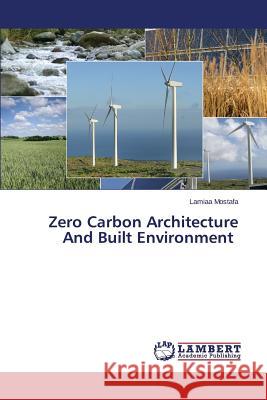Zero Carbon Architecture and Built Environment » książka
Zero Carbon Architecture and Built Environment
ISBN-13: 9783659402722 / Angielski / Miękka / 2014 / 272 str.
Energy used for Construction, Operation and Demolition of the building is one of the most significant sources of Carbon Dioxide emissions This will eventually affect the facades and lifespan of buildings and the entire environment. Therefore it is important to understand how to design an envelope of the building that controls energy flows between the interior and the exterior and the knowledge that will help to implement appropriate architectural design strategies. To this context, this book aims at explaining different methods to reduce building emissions, with an emphasis on energy and development of an envelope that works seamlessly with the HVAC system (e.g. use of renewable energy sources and architecture solutions (Passive and Active systems), Nanotechnologies, using Computer software, improving the efficiency of heating, cooling and lighting, ...etc) in order to rescue environment and achieve sustainability goals. This book shows how can Architects, governments and occupants use the Zero Carbon Architecture Strategies in terms of function and to serve the architectural aesthetics in reality practice and solving this problem
Energy used for Construction, Operation and Demolition of the building is one of the most significant sources of Carbon Dioxide emissions This will eventually affect the facades and lifespan of buildings and the entire environment. Therefore it is important to understand how to design an envelope of the building that controls energy flows between the interior and the exterior and the knowledge that will help to implement appropriate architectural design strategies. To this context, this book aims at explaining different methods to reduce building emissions, with an emphasis on energy and development of an envelope that works seamlessly with the HVAC system (e.g. use of renewable energy sources and architecture solutions (Passive and Active systems), Nanotechnologies, using Computer software, improving the efficiency of heating, cooling and lighting,...etc) in order to rescue environment and achieve sustainability goals. This book shows how can Architects, governments and occupants use the Zero Carbon Architecture Strategies in terms of function and to serve the architectural aesthetics in reality practice and solving this problem.











